What is Credit Card Fraud, and How to Report it?
Nov 22, 2023 By Triston Martin
Keeping your finances secure is crucial in today's digital age, and credit card fraud is a real concern. In this guide, we'll walk you through simple steps to report and prevent credit card fraud, ensuring that your hard-earned money stays where it belongs – in your wallet. Let’s get started!
What is Credit Card Fraud?
Credit card fraud happens when someone uses your credit card or its details without asking. It could be small purchases or bigger problems that mess with your money. Spotting and fixing credit card fraud is important to keep your money safe and your financial situation in good shape.
Common Signs of Credit Card Fraud
Here are some of the common signs of credit card fraud that you should consider keeping an eye on any fraudulent activity.
- Watch out for strange stuff on your credit card bills—things you didn't buy or weird changes.
- If you get statements for accounts you didn't open, that's not good.
- If your regular credit card statements stop showing up, someone might have messed with your account info.
How to Report Credit Card Fraud?
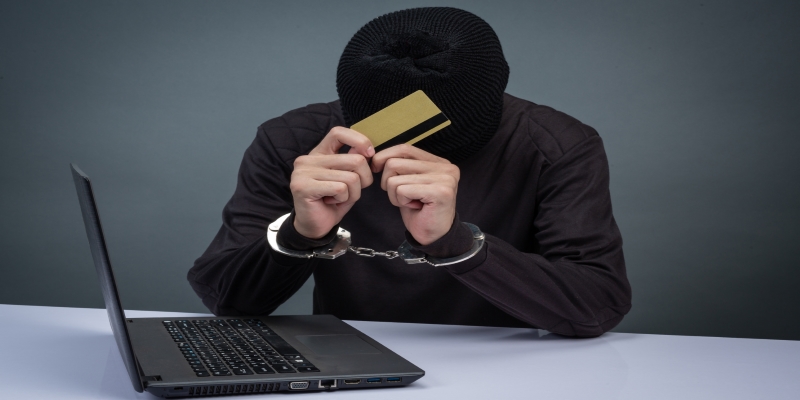
Reporting credit card fraud is a crucial step to protect your finances and limit the potential damage. Here's a detailed guide on how to report credit card fraud:
Contact Your Bank or Credit Card Issuer:
As soon as you notice any suspicious activity or unauthorized transactions on your credit card, call the customer service number provided by your bank or credit card issuer. This number is typically located on the back of your credit card. Be prepared to provide detailed information about the transactions in question. This may include the date, amount, and description of the unauthorized charges.
Freeze or Lock Your Card:
Certain banks provide the feature to temporarily freeze or lock your credit card using their mobile app or online banking platform. This action helps prevent additional unauthorized transactions while you look into the matter. In numerous instances, your bank might suggest issuing a new credit card with a different account number as a precaution against potential future fraudulent activity.
Review Your Credit Card Statements:
Thoroughly review your credit card statements and make a list of all suspicious transactions. Note the date, amount, and merchant details for each questionable charge. Look for any changes to your account information, such as updated contact details or additional cards issued without your knowledge.
File a Police Report:
Depending on the severity of the fraud and your bank's requirements, you may need to file a police report. Contact your local law enforcement agency to report the credit card fraud. Bring any documentation related to the fraudulent activity, such as your list of suspicious transactions, to the police station when filing the report.
Notify the Federal Trade Commission (FTC):
Visit the FTC's official website or call their toll-free number to file a complaint about credit card fraud. The FTC collects information that helps law enforcement agencies track and combat identity theft and fraud.
Update Your Security Information:
If you suspect that your credit card information was compromised, change the passwords and PINs associated with your accounts to prevent further unauthorized access. Where available, enable two-factor authentication for added security on your online accounts.
Monitor Your Credit Report:
Obtain a copy of your credit report from major credit bureaus. Review the report for any unfamiliar accounts or inquiries. Consider placing a fraud alert on your credit reports to alert creditors to verify your identity before opening new accounts.
How to Prevent Credit Card Fraud?
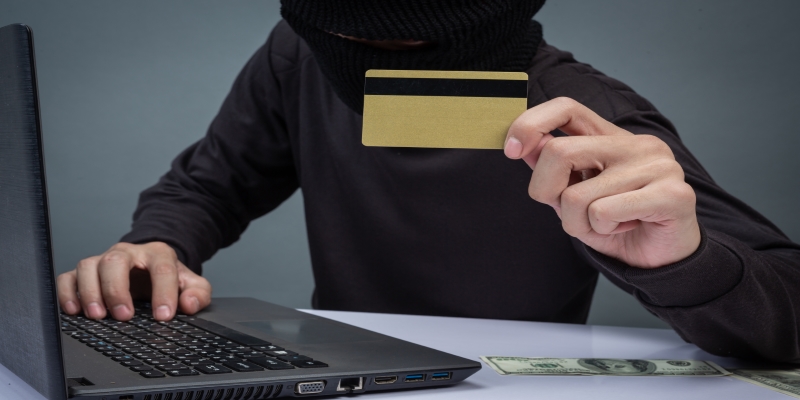
Preventing credit card fraud is essential to safeguard your financial well-being. Here's a detailed guide on how to prevent credit card fraud:
Keep Your Card Secure:
Treat your credit card like cash. Keep it in a secure place, such as a wallet or a cardholder, and avoid leaving it unattended. When entering your PIN at ATMs or point-of-sale terminals, shield the keypad to prevent others from seeing your personal information.
Use Secure Websites:
When making online purchases, ensure the website's URL begins with "https://" instead of just "http://". The "s" indicates a secure connection. Check for a padlock icon in the address bar, indicating that the website encrypts your credit card information for added security.
Monitor Your Accounts:
Frequently review your credit card statements for any unauthorized or suspicious transactions. Many banks offer online platforms or mobile apps where you can monitor transactions in real-time. Take advantage of your bank's alert features. Set up notifications for any activity on your credit card, including purchases, withdrawals, and account balance changes.
Enable Transaction Alerts:
Many banks allow you to set up transaction alerts via email or SMS. Enable these alerts to receive instant notifications for any activity on your credit card, helping you detect and address fraud promptly.
Protect Personal Information:
Avoid sharing your credit card details, especially the card number and security code, in public or over unsecured networks. Avoid writing your PIN on your credit card or carrying unnecessary personal information in your wallet.
Use Chip Cards:
Whenever possible, use credit cards equipped with EMV chip technology. This technology provides an added layer of security compared to traditional magnetic stripe cards. Before using ATMs or card readers at gas pumps, inspect the card slot for any unusual devices. Skimming devices can capture your card information when inserted into compromised machines.
Regularly Update Contact Information:
Ensure that your bank has your current contact information. This allows them to reach you promptly in case of suspicious activity or to confirm transactions. Stay informed about the latest scams and fraud tactics. Being aware of common techniques used by fraudsters can help you recognize and avoid potential threats.
Conclusion
Be watchful and do things ahead of time to keep yourself safe from credit card fraud. If you see anything strange, report it right away and take steps to stop it from happening. Being careful helps make sure your money stays in your pocket where it should be. This will help you report credit card fraud timely and stay aware of any fraudulent activity.

Exploring LendingTree's Home Equity Options
Mar 22, 2024
Explore the features, benefits, and potential drawbacks of LendingTree home equity services through a comprehensive review.
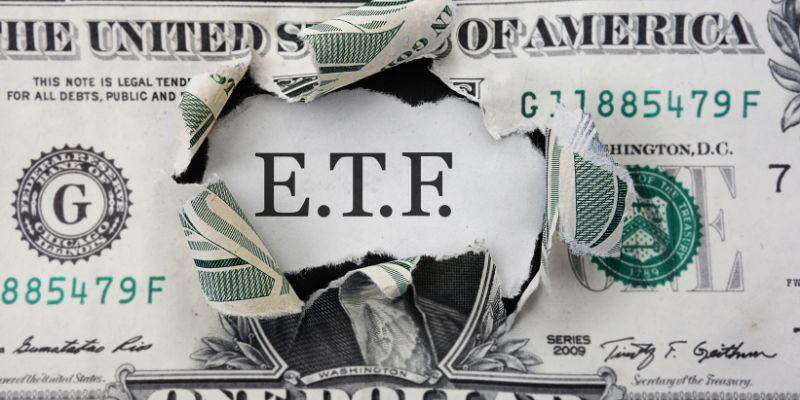
A Guide to Inverse ETFs: Protecting Your Investments in a Falling Market
Mar 15, 2024
Discover how inverse ETFs help investors profit in falling markets.

6 Ways to Get Rid of Financial Stress
Mar 22, 2024
Learn effective strategies to alleviate financial stress by mastering control over your finances. No more money worries!
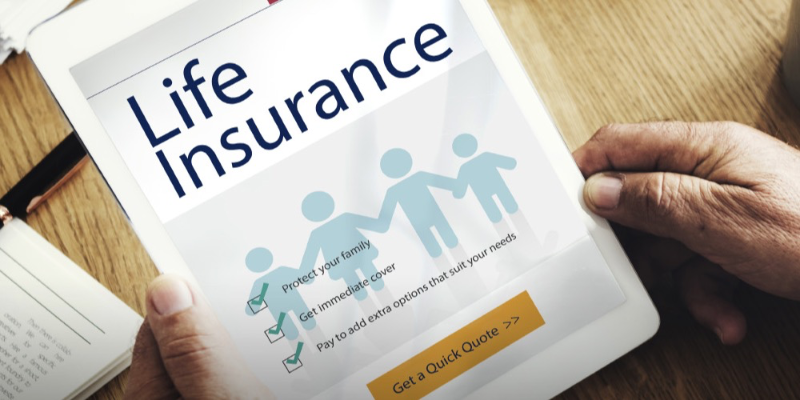
How to Choose the Perfect 20-Year Term Life Insurance Policy?
Mar 22, 2024
Find the best 20-year term life insurance policy with a comprehensive comparison. Understand the options to make an informed decision.

Top 10 Insurance Providers Championing Mental Health Coverage in 2024
May 17, 2024
Discover the top insurance companies offering extensive mental health coverage, from therapy to digital wellness programs, ensuring comprehensive care.

How 419(E) Welfare Benefit Plans Work and Why You Should Care?
May 16, 2024
Explore the benefits and complexities of 419(e) Welfare Benefit Plans, including tax advantages, compliance, and strategic considerations for employers.
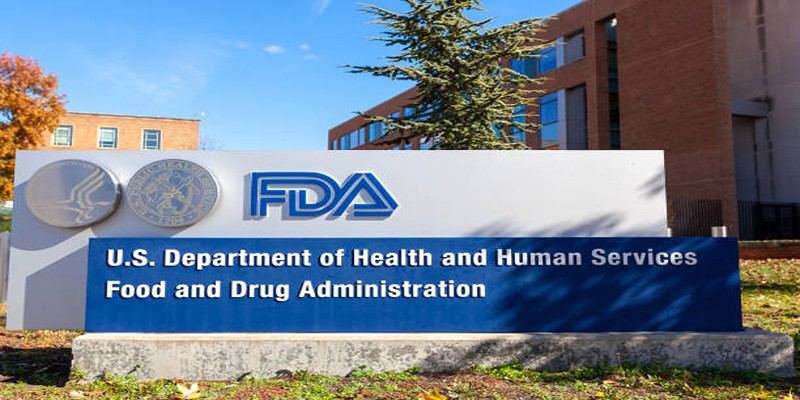
The U.S. Department of Health and Human Services (HHS): A Comprehensive Guide
May 17, 2024
Explore the vital role of HHS in improving health and well-being in the US through key programs like Medicare, ACA, and public health initiatives.

A Simple Guide to 7 Best Ways to Invest While You’re in College
Mar 13, 2024
Let’s explore the top 7 investment strategies for college students. Discover smart ways to grow your money with expert tips.

What is Credit Card Fraud, and How to Report it?
Nov 22, 2023
Protect your finances with our simple guide! Learn how to report and prevent credit card fraud effectively.

Things to Learn About Annual Interest Returns - a Simple Guide
Nov 22, 2023
Unlock the secrets of Annual Interest Returns with our simple guide! Learn how to make your money work for you and navigate the world of finance confidently.
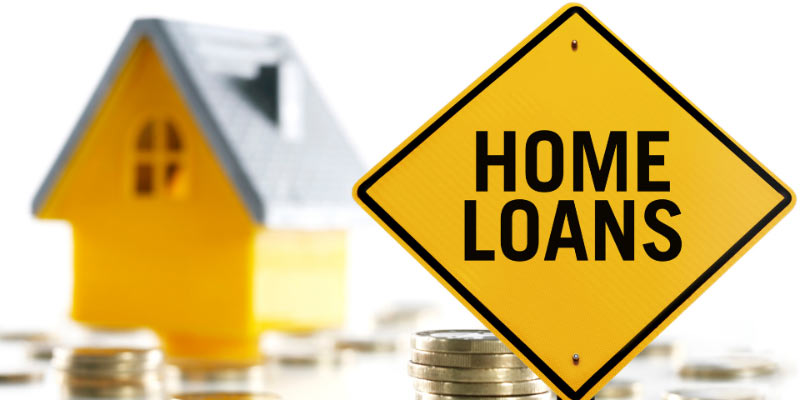
A Comparative Analysis Between Personal Loans and HELOCs
Mar 22, 2024
Discover the key differences between personal loans and HELOCs to make informed financial decisions tailored to your needs.
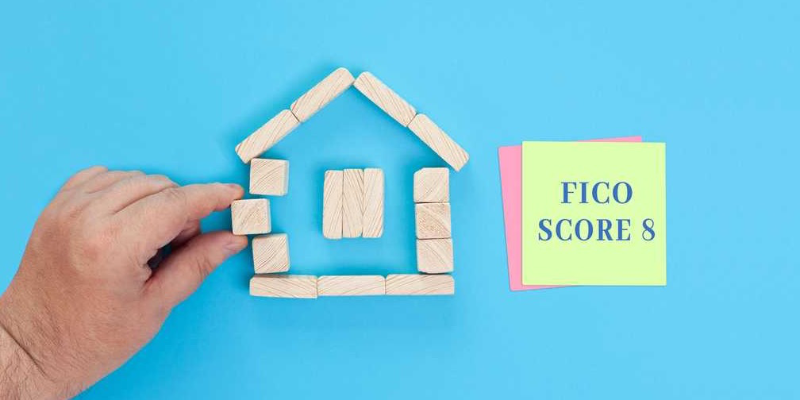
Your Complete Guide to FICO Score
Mar 21, 2024
Uncover the intricacies of FICO scores to make better credit decisions. Learn about their impact on your creditworthiness and financial health.